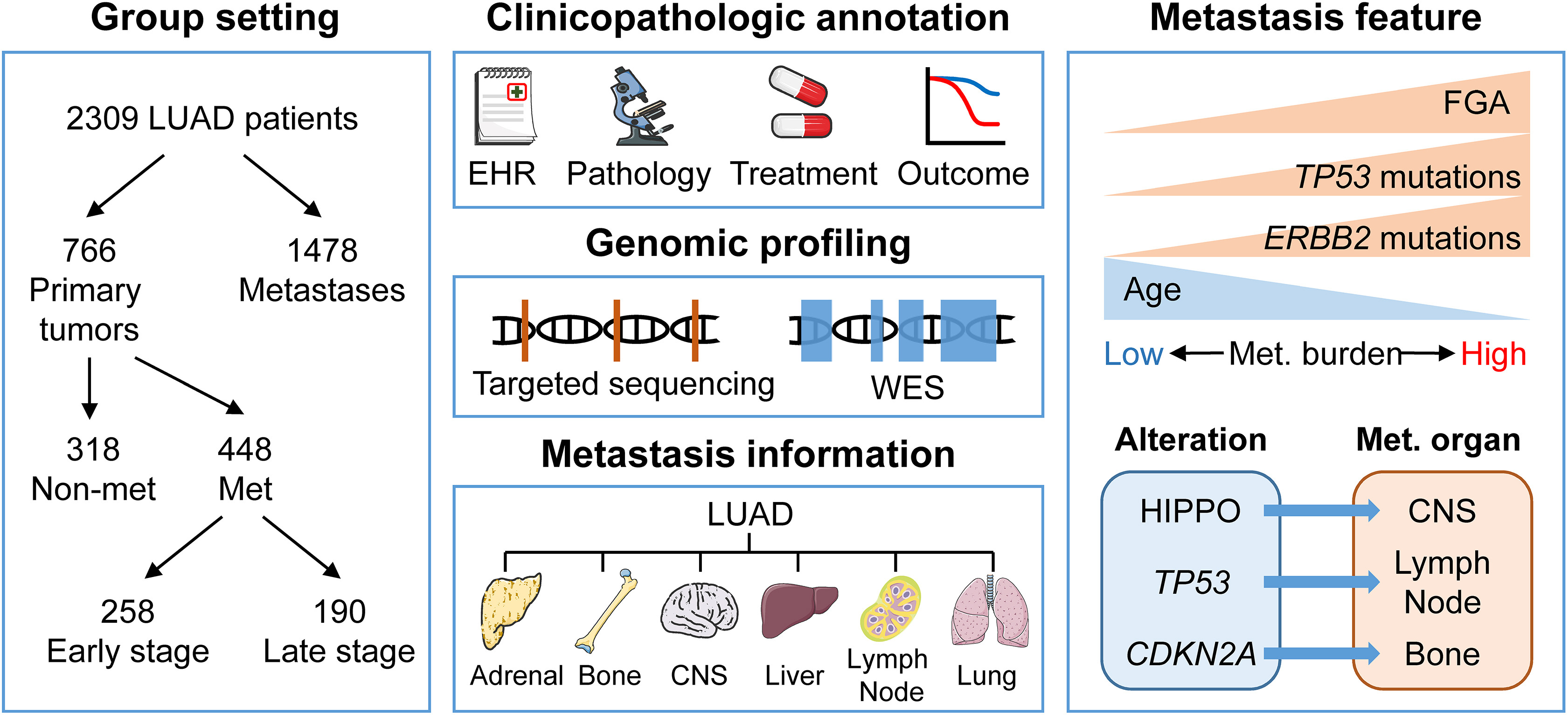Patients with lung adenocarcinoma (LUAD) frequently develop organotropic metastasis, while the genetic features associated with metastasis organotropism remain unclear. Prof. HU Guohong from the Shanghai Institute of Nutrition and Health, Chinese Academy of Sciences, was invited by Cancer Cell to contribute a preview discussing genetic features of LUAD tumors associated with metastatic development, burden and organotropism. Entitled “A genetic portrait of metastatic seeds in lung adenocarcinoma”, this preview was published online on May 8, 2023.
LUAD is the most common histological type of lung cancer, with high intratumoral heterogeneity and diverse genomic abnormalities. LUAD can metastasize to many organs with varied preference, known as metastasis organotropism.
The metastasis cascade is driven by both intrinsic features of tumor cells and extrinsic cues from the microenvironment, as stated by the “seed and soil” hypothesis. The disseminated tumor seeds can be delivered to many sites by circulation, while colonization of these incomers is largely dependent on their compatibility with the soil of each organ, leading to the apparent organotropism of metastasis.
Previous studies have shed light on the roles of key microenvironmental components for site-specific colonization, while it is less clear how the metastatic destinations of tumor cells are pre-determined by their genetic alterations.
In a recent Cancer Cell paper by Lengel and colleagues, the researchers analyzed clinicopathologic and genomic information of 2532 LUAD specimens, unveiling features associated with metastasis organotropism. This research lays a solid ground for prognostic prediction of metastasis risk and discovery of therapeutic targets.
“New strategies to intervene in the vicious interaction of tumors with the metastasis soil, especially the organ-specific niches, will hold great potential for controlling metastasis,” said Prof. HU.

An integrative analysis of genetic features associated with LUAD metastasis. (Image by Prof. HU’s group)
Prof. HU Guohong’s lab focuses on the understanding of organ-specific metastasis in breast cancer and has reported many novel findings, including the role of DKK1 in organotropic metastasis of breast cancer (Zhuang et al., Nat Cell Biol, 2017), the regulation of NETs by CTSC in breast cancer lung metastasis (Xiao et al., Cancer Cell, 2021), and the mechanism mediating bone-tropism of luminal breast cancer (Wu et al., Cell Res, 2023).
Media Contact:
WANG Jin
Shanghai Institute of Nutrition and Health,
Chinese Academy of Sciences
Email: wangjin01@sinh.ac.cn
Web: http://english.sinh.cas.cn/

